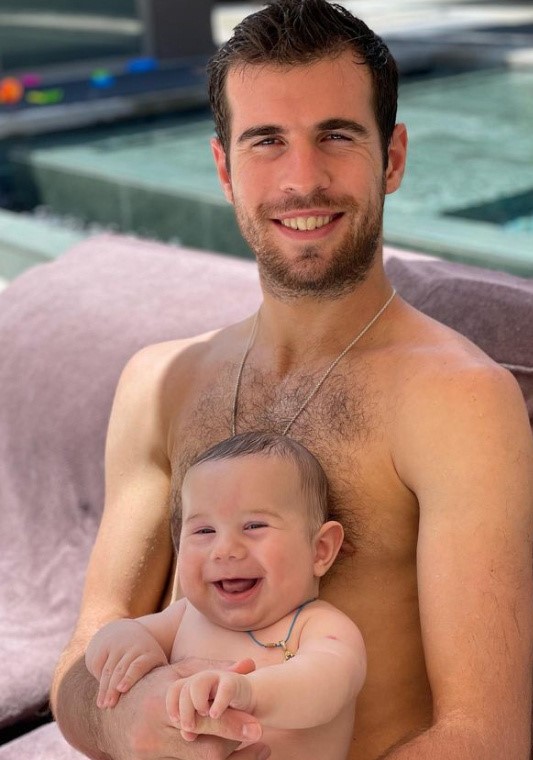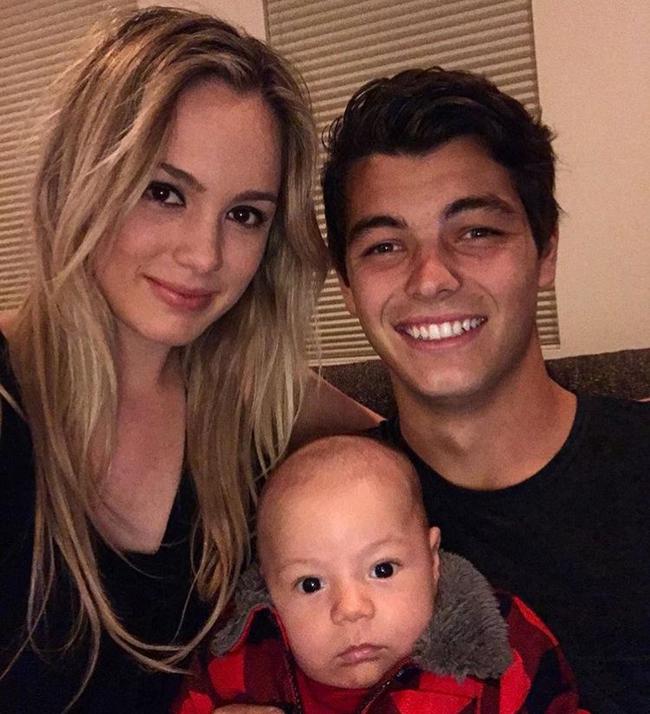The second child is coming! From Musetti's second child, we can see the phenomenon of early marriage and early childbearing in men's tennis
On May 19, 2025, 23-year-old Italian tennis star Musetti announced on social media that his wife was pregnant with a second child, just over a year after the birth of his eldest son, Ludovico. This clay star is not only a high-profile "SLR artist" on the court, but also a typical representative of "early marriage and early childbearing" in men's tennis. In fact, in recent years, many top players, including Medvedev, Khachanov and Fritz, have married or become fathers before the age of 25. This trend breaks with the traditional notion of "starting a career before starting a family" in the professional sports world, and reflects the new exploration of the new generation of athletes to balance family and career.

Musetti is not alone. Russian star Khachanov married at the age of 20 and started a family, saying that his wife "plays an important role in her career"; Medvedev also married early and had a daughter; American Fritz also has a son. Together, these cases point to a trend in which the age of marriage and childbearing in men's tennis is moving significantly from 30 to 20-25. This phenomenon is in stark contrast to tradition. The "Big Three" represented by Federer, Nadal, and Djokovic all married late and had children later. The new generation of players is more inclined to start a family at the same time as the rising stage of their careers, and even complete the second child plan at the age of 23 like Musetti.

The rise of early marriage and early childbearing is closely related to the ecological changes of professional tennis, which can be interpreted from three dimensions: First, the schedule of modern professional tennis is intensive and the pressure is huge. A new generation of players has been competing globally since their teenage years, and a long period of adrift has created a desire for stable relationships. Musetti's coach, Simona Tatarini, has stressed the importance of developing "mental qualities", and families are seen as "safe havens" for anxiety. Khachanov bluntly said that his wife was the "pillar of his career" and helped him stay focused during the trough; Secondly, in the age of social media, the personal lives of athletes have become an important part of brand value. The image of a "good man" who marries early and has children can help attract family-oriented brand collaborations. For example, when Musetti appeared on the cover of the Italian edition of Esquire, his "father" identity and fashion temperament constituted a topic of discussion; Finally, with advances in sports medicine, the professional life expectancy of players has increased significantly. If it is calculated as retirement at the age of 35, starting a family at the age of 25 can realize the early childhood companionship of children in the golden period of their career (25-30 years old) and avoid the regret of "making up classes after retirement". Musetti's coaching staff see family stability as part of a "long-term" plan that helps reduce off-field distractions.

The impact of early marriage and early childbearing on players is like two sides of the same coin, which needs to be viewed dialectically. On the positive side, it can lead to increased mental resilience and a sense of responsibility, such as increased emotional stability and family responsibilities that encourage players to be more mature in coping with winning and losing. After Medvedev was heavily punished for losing control of his emotions at the 2024 Australian Open, it was widely believed that he needed to "learn from Musetti the emotional management that comes with family". In addition, early marriage can boost career motivation, and Khachanov describes the bonus as a "fund for the future of the child", and the sense of responsibility translates into motivation for training. After reaching the quarterfinals at Wimbledon in 2024, Musetti attributed his victory to the belief that he "fights for his family".

Of course, early marriage and early childbearing also have obvious negative sides. For example, it distracts the players' energy, and the contradiction between intensive events and childcare needs is unavoidable. When Musetti lost to China's Buyun Chaoket in the 2024 China Open, foreign media speculated that he was "distracted by the second child plan". Then the married life of such players is often exposed to public scrutiny, and the marital status is easy to become the focus of public opinion. Fritz was questioned by netizens about his girlfriend's luxurious life on social media, and was forced to close the comment area.

Traditionally, athletes need to remain "single and abstinent" in order to focus on training. Today, families are seen as part of the "invisible team". Musetti's father, Francisco, and coach Tatarini built the support system, while his wife, Veronica, took on the role of logistical and emotional support, forming a "family-coach-player" triangle. The role of the female partner has shifted from "foil" to "business partner". The Khaciano couple is involved in their business decisions, while Musetti's wife uses social media to shape their public image. This kind of equal and collaborative relationship weakens the stereotype that "marriage drags down career". The ATP currently lacks guaranteed policies for married players (e.g. parental leave, family travel allowances), forcing players to coordinate on their own. The Italian tennis association provides Musetti with stable wild card resources through the "mentoring system", which indirectly alleviates the pressure on his family, and this model may become a model for reform.

Musetti's choice is essentially a reinterpretation of the definition of "success" by a new generation of players – a successful career and a successful family life are no longer an either/or choice. Despite the challenges, this experiment in "early marriage and early childbearing" has humanized professional sports. As Musetti said after qualifying at Wimbledon: "Tennis is my passion, but my family makes me a whole person. As more players find a balance on and off the court, men's tennis could usher in a more inclusive and diverse golden age.(Source: Tennis Home Author: Xiaodi)







 Links
Links
 Contact
Contact
 App
App


